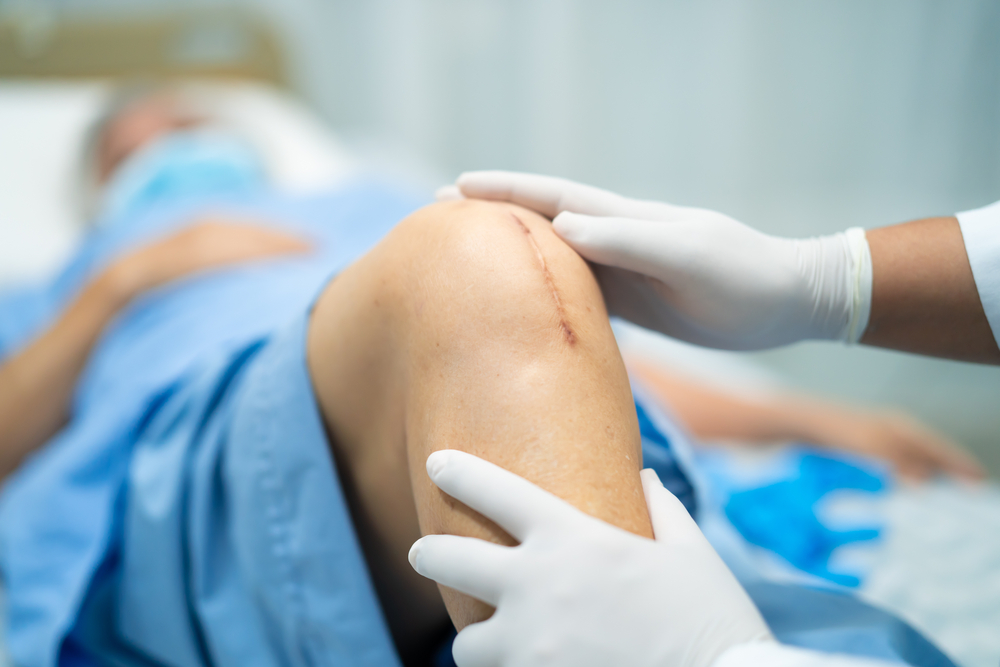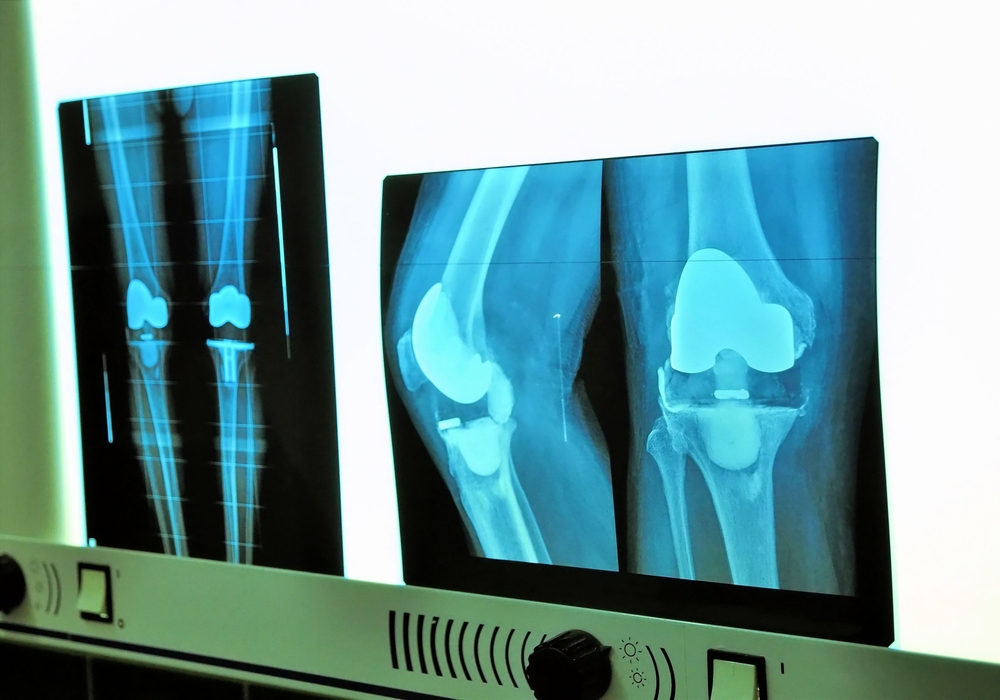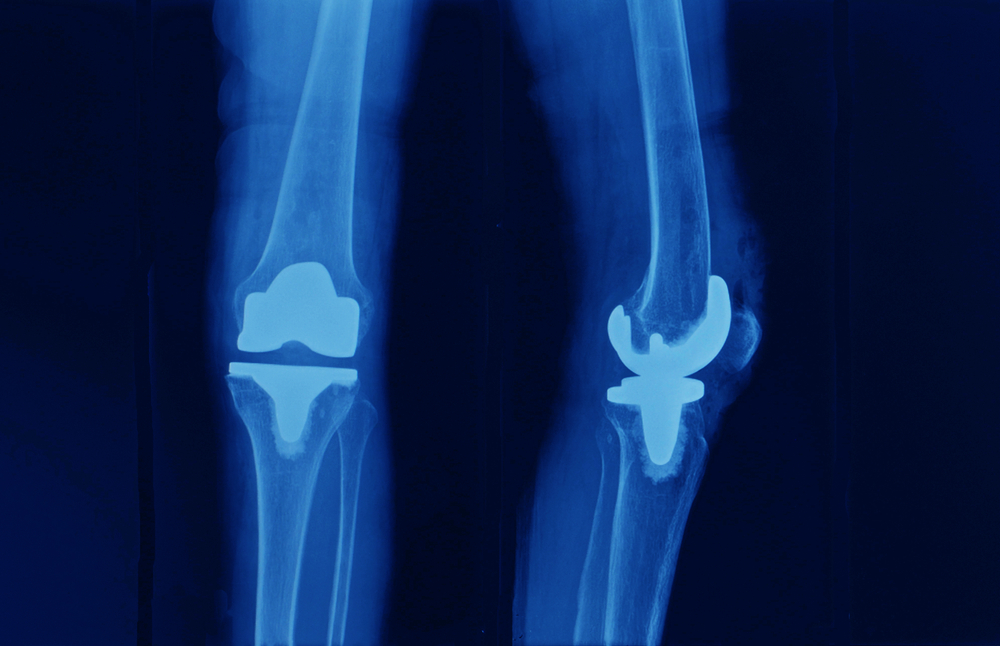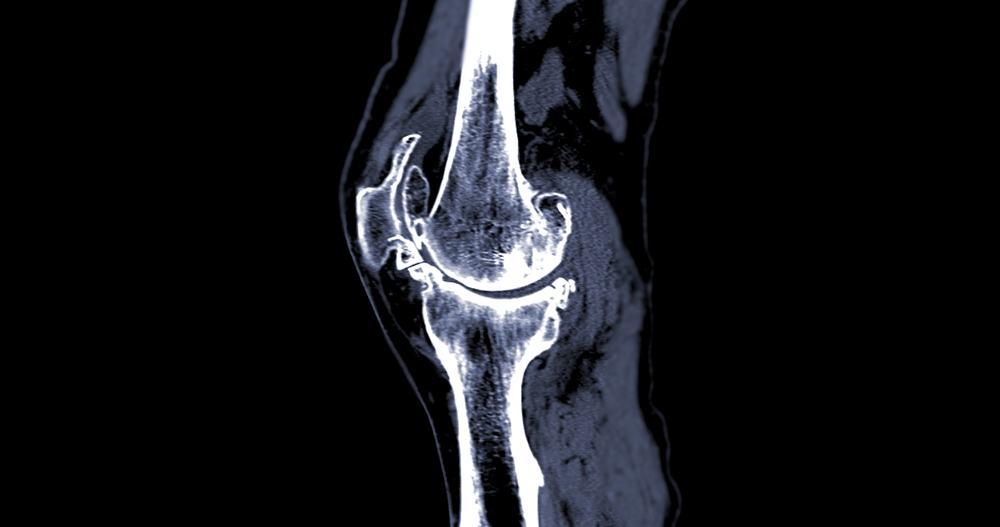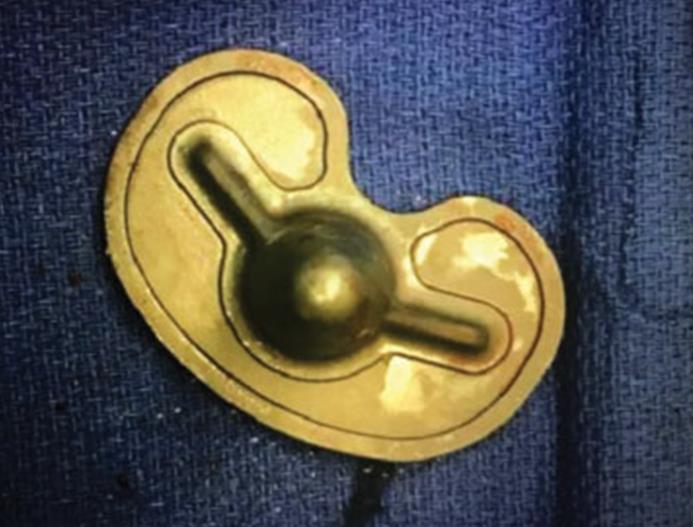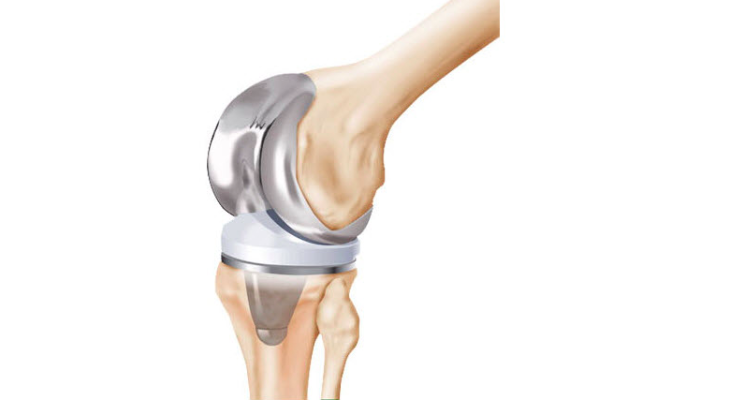 Knee replacement surgery, also known as arthroplasty, is a common surgical procedure used to reduce pain in patients whose knees have been damaged by arthritis, serious injury, or excessive wear and tear.
Knee replacement surgery, also known as arthroplasty, is a common surgical procedure used to reduce pain in patients whose knees have been damaged by arthritis, serious injury, or excessive wear and tear.
Knee replacement surgery could become an option after less invasive knee treatments such as medication or walking supports, have been tried without success. In a total knee replacement procedure, the damaged surfaces of the knee joint are removed and replaced by a prosthetic implant made of metal, plastic, or a combination of the two.
Total knee replacements can function well for up to 20 years, but some patients experience premature failure, which necessitates revision surgery. Knee revision surgeries are typically more painful and invasive that a first-time knee replacement because they require tearing a faulty device that has been cemented into place away from the bone. Sometimes knee implants damage so extensively that a reconstructive surgery is required to completely rebuild the knee before a replacement device can be installed.
DePuy Knee Implant System Failure
The U.S. Food and Drug Administration (FDA) has received numerous complaints regarding failure associated with the DePuy Synthes Attune Knee System. Patients are reporting that these devices are failing prematurely, sometimes within only a year or two of implant, due to:
- Loosening of the implant’s tibial component
- Tibial subsidence, in which the implant sinks into softer bone tissue surrounding the knee
- Change in the position of the components.
The Attune system utilizes metal-on-metal components, which can lead to metal hypersensitivity on the part of the patient, which may result in significant functional impairment and aseptic prosthesis failure, according to a 2015 study published in The American Journal of Case Reports. Patients who suffer from metal hypersensitivity after total knee replacement typically require revision surgery.
Please Note: CSS Firm is no longer accepting or investigating new knee implant claims at this time. This article is for educational purposes only.
Other Knee Implant Lawsuits News
Tibial debonding in knee replacements can cause implant loosening and require revision surgery. Learn how this complication occurs, its risks, and potential legal considerations for affected patients.
Aseptic loosening, the leading cause of knee replacement failure, can result in pain, reduced mobility, and revision surgery. Learn the causes, risks, and potential treatment options for affected patients.
Knee replacement base plate loosening can cause pain, stiffness, and instability, often requiring revision surgery. Learn how design, sizing, and manufacturer issues may impact implant longevity and patient outcomes.
A bone scan can help determine the condition of a knee joint or implant before replacement or revision surgery, offering surgeons critical diagnostic insights not always visible through standard imaging.
The first lawsuit over premature failure of the DePuy Attune knee implant has been filed, highlighting concerns about tibial base plate loosening and potential widespread complications among patients.
Knee replacements can fail due to infection, wear, or implant defects. Learn the warning signs of knee implant failure and the medical steps you may need to take.

